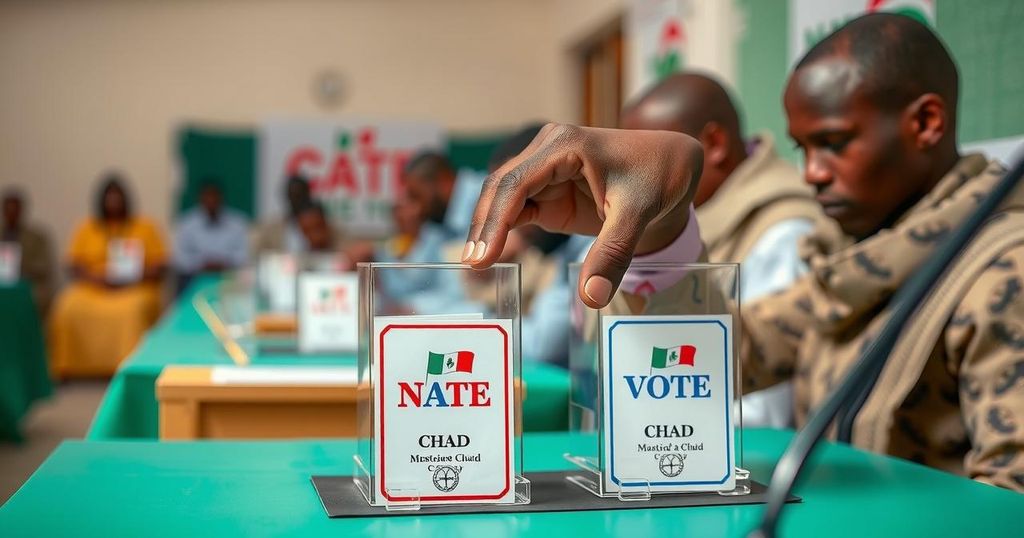Chad’s Parliamentary Election: A Critical Juncture Amidst Opposition Boycott

Voting is underway in Chad’s first parliamentary election in 13 years amid a boycott by opposition parties claiming predetermined results. Low turnout is reported, particularly in the capital, as citizens seek change in a struggling economy. Concerns regarding electoral fraud and political dissatisfaction highlight the challenges in the country’s transition to democracy under President Mahamat Idriss Deby Itno.
Voting has commenced in Chad for the first parliamentary election in 13 years, intended by the government as a pivotal move toward democratization and the conclusion of military governance. Citizens are voting for members of a new parliament, provincial assemblies, and local councils in a nation grappling with dire economic conditions. However, the opposition has called for a boycott, undermining potential voter turnout in this election, which follows the military-backed leadership of President Mahamat Idriss Deby Itno since 2021.
In the capital, N’Djamena, polling stations opened with reports of low voter turnout; officials attributed this to the uncharacteristically cold weather rather than political disengagement. Opposition leaders criticize the integrity of the electoral process, asserting that the election results have been predetermined. This has prompted calls for the collective rejection of participation in a democracy they claim is compromised.
Deby, who seeks to consolidate his power following the recent presidential election, emphasized the significance of the vote via social media, urging the public to participate actively. In contrast, Succes Masra, an opposition figure, expressed skepticism regarding the election’s validity, remarking, “The fabricated results are already in the computers.” Meanwhile, citizens such as Patrice Lumumba Deoumoundou expressed hope for a transformative outcome, demanding improvements in job opportunities and social equity.
Chad’s electoral body reported a high turnout among soldiers and nomads, yet concerns regarding transparency persisted. The Democratic Party of the Chadian People reported irregularities, including the alleged disappearance of ballots, emphasizing the need for vigilance against election fraud. This electoral process unfolds amidst security challenges from Boko Haram and regional instability exacerbated by climate change and socio-economic issues.
The government has framed this election as a crucial step in evolving towards a democratic framework, following the long-standing governance of Deby’s father. Polling continues to attract scrutiny as various societal groups, including nomads facing the impacts of climate change, seek representation to address their needs.
Chad has been under military rule since 2021 when President Mahamat Idriss Deby Itno took power following the death of his father, who led the country for three decades. The current parliamentary elections, the first in over a decade, have been presented by the government as a transition towards democracy. However, widespread distrust among opposition parties has led to a boycott, questioning the legitimacy of the electoral process amid allegations of pre-determined results.
In summary, the parliamentary elections in Chad represent both a potential turning point towards democratic governance and a reflection of deep-rooted tensions between the ruling government and opposition factions. As the vote unfolds with considerable opposition calls for a boycott, it reveals the complexities of electoral participation in a country facing socio-economic and security challenges. Deby’s administration continues to face scrutiny concerning the integrity of the electoral process and the legitimacy of its leadership.
Original Source: www.aljazeera.com







